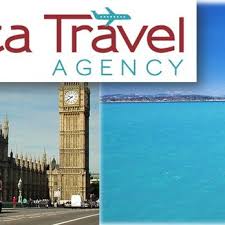Travel and tourism play a significant role in shaping our world, bringing people together, fostering cultural exchange, and boosting economies. From exploring ancient ruins in far-off lands to relaxing on pristine beaches, the allure of travel is undeniable. Let’s delve into the importance of travel and tourism in today’s interconnected world.
The Economic Impact
Travel and tourism are major contributors to global economies. The industry creates jobs, supports local businesses, and generates revenue for governments through taxes and fees. From airlines to hotels to tour operators, countless businesses rely on the influx of tourists to thrive.
Cultural Exchange
One of the most rewarding aspects of travel is the opportunity to immerse oneself in different cultures. Whether sampling local cuisine, learning traditional dances, or visiting historical sites, travelers gain a deeper understanding and appreciation for the diversity of our world. These cross-cultural interactions foster empathy, respect, and mutual understanding among people from different backgrounds.
Sustainable Tourism
As awareness of environmental issues grows, so does the importance of sustainable tourism practices. Travelers are increasingly seeking eco-friendly accommodations, supporting local conservation efforts, and minimizing their carbon footprint. Sustainable tourism aims to preserve natural resources, protect wildlife habitats, and promote responsible travel behavior for the benefit of present and future generations.
Personal Growth
Travel has the power to transform individuals by pushing them out of their comfort zones and exposing them to new experiences. Whether overcoming language barriers, navigating unfamiliar streets, or trying exotic foods, travelers develop resilience, adaptability, and a broader perspective on life. These personal growth opportunities are invaluable souvenirs that last long after the trip ends.
The Future of Travel
As technology advances and global connectivity increases, the future of travel holds endless possibilities. Virtual reality tours may revolutionize how we explore destinations from the comfort of our homes. Sustainable travel practices will continue to evolve to protect our planet for future generations. And cultural exchange programs will further bridge divides between people from different corners of the globe.
In conclusion, travel and tourism are not just about sightseeing; they are about connecting with others, broadening horizons, and creating lasting memories. So pack your bags, embark on new adventures, and let travel enrich your life in ways you never imagined.
Understanding Travel and Tourism: Key Questions and Insights
- How does travel and tourism work?
- What is meant by travel and tourism?
- What is a travel and tourism degree?
- Is travel and tourism good?
- What skills do you need for travel and tourism?
How does travel and tourism work?
Travel and tourism operate through a complex network of interconnected industries and services that cater to the needs and desires of travelers worldwide. From transportation providers like airlines and railways to accommodation options such as hotels and vacation rentals, each sector plays a vital role in facilitating journeys and creating memorable experiences for tourists. Tour operators, travel agencies, and online booking platforms help connect travelers with destinations, activities, and services that suit their preferences. Additionally, attractions, restaurants, tour guides, and local businesses contribute to the overall travel experience by showcasing the culture, history, and natural beauty of different regions. In essence, travel and tourism work by bringing together various stakeholders to offer diverse travel opportunities that cater to the interests of a global audience.
What is meant by travel and tourism?
Travel and tourism refer to the activities of individuals traveling to different destinations for leisure, recreation, or business purposes. Travel involves the physical movement from one place to another, while tourism encompasses a broader concept that includes accommodations, attractions, and services catering to travelers. Whether exploring new cultures, relaxing on a beach, or attending business meetings in a foreign country, travel and tourism play a vital role in connecting people worldwide and enriching their lives with diverse experiences.
What is a travel and tourism degree?
A travel and tourism degree is an academic program that equips students with the knowledge and skills needed to pursue a career in the dynamic and diverse field of travel and tourism. This specialized degree typically covers topics such as hospitality management, tourism marketing, destination planning, cultural awareness, and sustainable tourism practices. Students may also gain practical experience through internships or hands-on projects to prepare them for roles in travel agencies, tour companies, hotels, airlines, event planning firms, and other sectors of the industry. A travel and tourism degree not only provides a solid foundation in the business aspects of the field but also fosters a deep understanding of the cultural, economic, and environmental impacts of global travel.
Is travel and tourism good?
The impact of travel and tourism is multifaceted, with both positive and negative aspects. On the positive side, travel and tourism can promote cultural exchange, boost economies, create job opportunities, and foster understanding among people from different backgrounds. It allows individuals to explore new destinations, broaden their perspectives, and create memorable experiences. However, challenges such as over-tourism, environmental degradation, and cultural commodification also exist. It is essential for the industry to prioritize sustainable practices and responsible tourism to ensure that the benefits of travel and tourism outweigh any negative consequences.
What skills do you need for travel and tourism?
In the dynamic field of travel and tourism, a diverse set of skills is essential for success. Strong communication skills are crucial for interacting with travelers, colleagues, and service providers effectively. Attention to detail is vital when organizing itineraries, bookings, and ensuring a seamless travel experience. Adaptability and problem-solving skills come in handy when facing unexpected challenges or changes in plans. Customer service skills are key for providing exceptional experiences and addressing traveler needs promptly. Cultural awareness and language proficiency can enhance interactions with diverse groups of people, fostering meaningful connections and enriching the overall travel experience.





